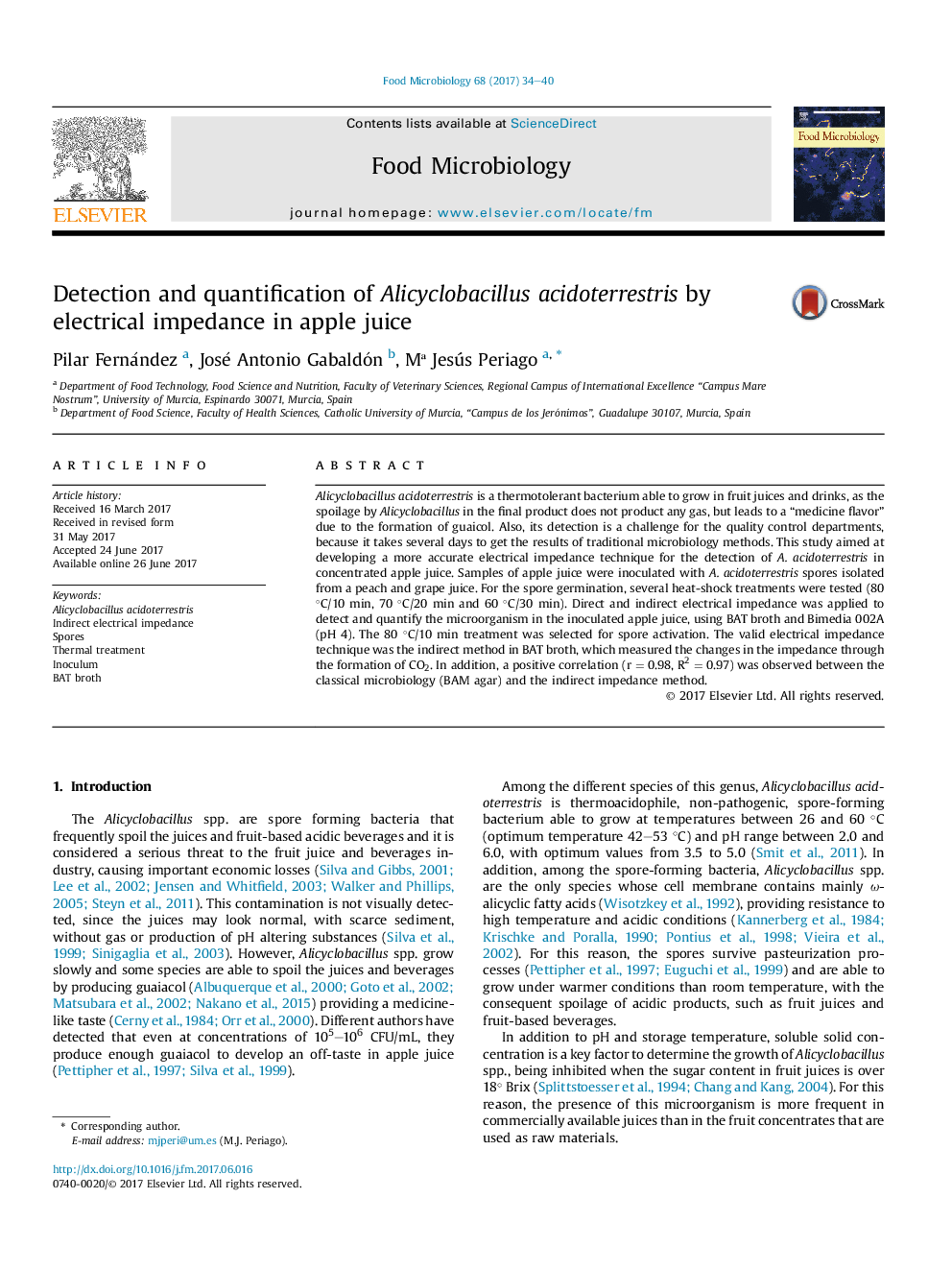| کد مقاله | کد نشریه | سال انتشار | مقاله انگلیسی | نسخه تمام متن |
|---|---|---|---|---|
| 5740104 | 1616233 | 2017 | 7 صفحه PDF | دانلود رایگان |

- The 80 °C/10 min was the heat-shock treatment selected for spore activation of Alicyclobacillus acidoterrestris in apple juice.
- Direct impedance can not be used to detect Alicyclobacillus acidoterrestris in apple juice.
- Alicyclobacillus acidoterrestris is detected and quantified by indirect electrical impedance with broth BAT in apple juice.
- There is a good correlation between the classical microbiology and the indirect impedance technique.
Alicyclobacillus acidoterrestris is a thermotolerant bacterium able to grow in fruit juices and drinks, as the spoilage by Alicyclobacillus in the final product does not product any gas, but leads to a “medicine flavor” due to the formation of guaicol. Also, its detection is a challenge for the quality control departments, because it takes several days to get the results of traditional microbiology methods. This study aimed at developing a more accurate electrical impedance technique for the detection of A. acidoterrestris in concentrated apple juice. Samples of apple juice were inoculated with A. acidoterrestris spores isolated from a peach and grape juice. For the spore germination, several heat-shock treatments were tested (80 °C/10 min, 70 °C/20 min and 60 °C/30 min). Direct and indirect electrical impedance was applied to detect and quantify the microorganism in the inoculated apple juice, using BAT broth and Bimedia 002A (pH 4). The 80 °C/10 min treatment was selected for spore activation. The valid electrical impedance technique was the indirect method in BAT broth, which measured the changes in the impedance through the formation of CO2. In addition, a positive correlation (r = 0.98, R2 = 0.97) was observed between the classical microbiology (BAM agar) and the indirect impedance method.
Journal: Food Microbiology - Volume 68, December 2017, Pages 34-40